Singapore Brain Development Centre
Our Location
1 GOLDHILL PLAZA #01-11 S(308899)
LITERACY
Opening the gateway to thinking and learning

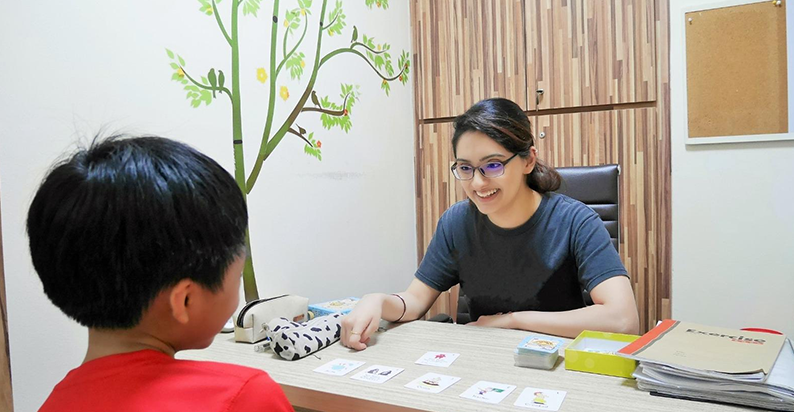
What is Literacy and Why is it important?
Literacy encompasses the valuable skills of reading and writing, enabling children to engage meaningfully with the world around them.
Reading opens doors to a vast realm of knowledge and information, fostering discovery and continuous learning. It nurtures imagination and stimulates mental development. Writing, on the other hand, empowers children to express their thoughts, emotions, and knowledge, enabling effective communication and sharing of ideas. By nurturing literacy skills, we empower children to unlock their full potential and actively participate in the world.
- RECEPTIVE AND EXPRESSIVE LANGUAGE SKILLS
Receptive language is the “input” of language, the ability to understand and comprehend spoken language that you listen to or read. If your child struggles with receptive language skills, they will struggle with reading comprehension, following directions, taking notes in class, etc.
Expressive language, in contrast, is the “output” of language, the ability to express your wants and needs through speaking or writing. If your child struggles with expressive language skills, he/she will struggle with sharing his/her thoughts, ideas and feelings.
Language, encompassing both receptive and expressive abilities, lays the foundation for literacy development.
OUR EVIDENCE BASED PROGRAMS FOR LITERACY
- SEEING STARS ® SYMBOL IMAGERY Program

- Build Receptive Language
The Seeing Stars® program focuses on building the component parts of a functional and fluent reader, including phonemic awareness, word attack skills, and symbol imagery which enhances word recognition and reading fluency. Instruction begins by building the processing skills needed to learn naturally and progresses applying these skills to the reading process. (Source: www.lindamoodbell.com)
- Master the Code ® sound-to-code reading & SPELLING program
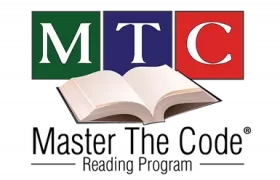
- Build Receptive/ Expressive Language
Master the Code ® is a reading and spelling program that develops phonemic awareness, visual awareness of words, and an understanding of the phonetic code of the language. MTC starts with blending, segmenting, and sound analysis. Practice is provided in segmenting words into isolated phonemes and also blending isolated sounds into words. Encoding (spelling), decoding (reading), and writing exercises are used so that the reversibility of the code is made clear. (Source: www.masterthecode.com)
- Moyers Learning Ears ® auditory stimulation program
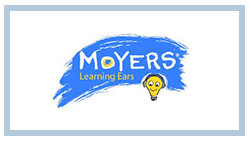
- Build Receptive/ Expressive Language
Learning Ears ® is a program that uses an Auditory-Language stimulation method with specific ear-voice training to develop listening, language, communication, memory and basic literacy and learning skills. It is a tool used to improve a person’s ability to receive, understand, and retain incoming information. (Source: www.learningears.com)
- Talkies ® Oral language comprehension & Expression program
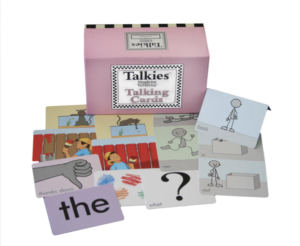
- Build Expressive Language
The Talkies® program—the primer to the Visualizing and Verbalizing® (V/V®) program—is designed for students who need simpler, smaller instruction steps to establish the imagery-language connection. Talkies aims to develop the dual coding of imagery and language as a base for language comprehension and expression. Talkies is especially helpful for students with a limited oral vocabulary and/or limited ability to verbalize. (Source: www.lindamoodbell.com)
- Visualisation & Verbalisation ® reading comprehension & Thinking program

- Build Expressive Language
The Visualizing and Verbalizing® (V/V®) program develops concept imagery – the ability to create an imagined gestalt from language – as a basis for comprehension and higher-order thinking. The development of concept imagery improves reading and listening comprehension, memory, oral vocabulary, critical thinking, and writing. (Source: www.lindamoodbell.com)

SCHEDULE A COMPLIMENTARY CONSULTATION
Imagery And the Language Processing Spectrum


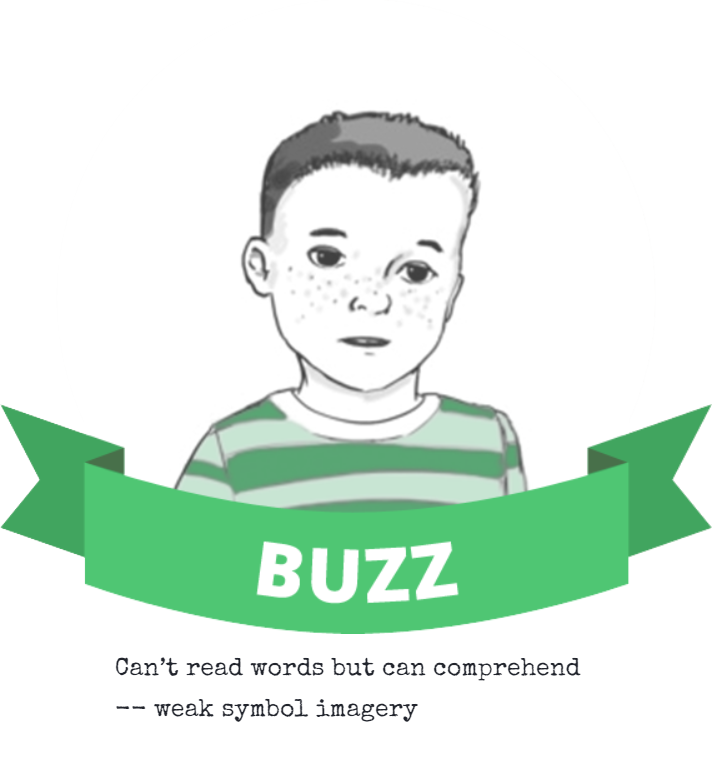
Symptoms of symbol imagery weakness
- Symptoms of concept imagery weakness
- Weak word attack skills
- Weak word recognition skills
- Difficulty learning and retaining sight words
- Weak phonological spelling skills (optnrty for opportunity)
- Weak orthographic spelling skills (opertunity for opportunity)
- Difficulty reading fluently in context
- Difficulty monitoring and self-correcting reading and spelling errors
- Slow and laborious decoding skills
- May be labeled dyslexic
IS YOUR CHILD SOFIE?
Buzz has difficulty reading fluently, self-correcting, and spelling. Buzz sees the word “stream” but reads the word as “steam”. He struggles to learn sight words. Students with these symptoms may be labeled as dyslexic.
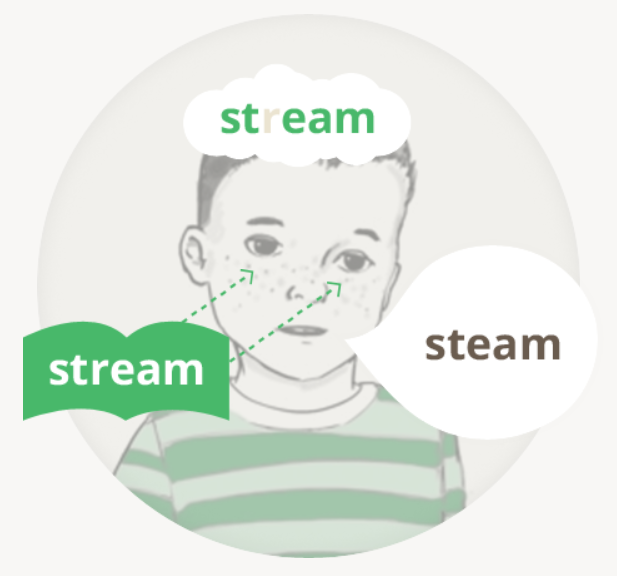
Required for Comprehension

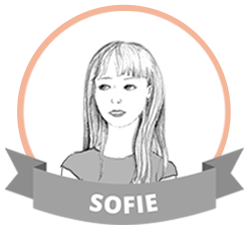
IS YOUR CHILD SOFIE?
Sofie has strength in reading, but she doesn’t understand what she reads. She remembers only parts of what she reads and hears and has trouble following directions. Students with these symptoms may be labeled as having low motivation or short attention span. Students who experience great difficulty with comprehension may be labeled as Autistic.


- Symptoms of concept imagery weakness
- Weak reading comprehension
- Weak listening comprehension
- Difficulty with critical thinking and problem solving
- Difficulty following directions
- Difficulty expressing language orally
- Weak written expression
- Difficulty grasping humor
- Difficulty with cause and effect
- Weak attention and focus
- Difficulty with mental mapping
- Difficulty responding to a communicating world
Key Highlights of our Literacy Program
Language plays a crucial role in children’s cognitive and educational development. In our Literacy program, we aim to equip children with the necessary language skills to effectively communicate with others and express themselves in various everyday situations. Moreover, we focus on developing their ability to comprehend and convey meaning through print, fostering their literacy skills. By achieving these learning goals, children gain the tools to engage in meaningful interactions, understand written information, and effectively express their thoughts and ideas.
- An active, interactive approach
We create environments that foster active participation and verbal interaction, ultimately nurturing your child’s interest in learning. Through a variety of activities such as storytelling cards, charades, language development games, picture sequencing, and Kahoot quizzes, we make literacy a fun and interactive experience. These activities not only enhance language skills but also promote creativity and critical thinking.
- Effective and evidence based
Our evidence-based programs are rooted in the cognitive science of learning, addressing the core issue that struggling readers often face – a lack of effortless sensory connection to reading and comprehension. Our approach begins by providing educators with a deep understanding of why their students struggle. Through comprehensive training, they learn to identify and address the underlying causes of reading difficulties.
- CHILD-LED AND INTEREST INSPIRED LEARNING
Our instructional approach focuses on harnessing your child’s personal interests to facilitate the acquisition of knowledge and skills. By allowing them to explore subjects they are passionate about, we create a motivating learning environment that leads to deeper and more meaningful educational experiences. This approach not only promotes active engagement but also nurtures essential skills such as critical thinking and creativity.
- Focus on underlying cognitive abilities
Our comprehensive literacy program goes beyond traditional teaching methods by incorporating our expertise in cognitive development and training. We recognise that weak underlying cognitive abilities can contribute to language and literacy difficulties. Therefore, our program focuses on enhancing critical skills such as auditory and visual processing, as well as improving focus and attention abilities.

